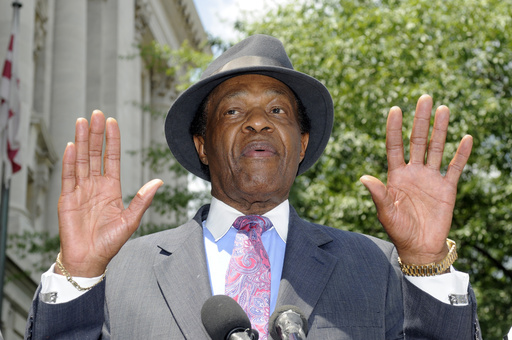In a significant move, the D.C. Council reached a unanimous decision on Tuesday to expel Councilmember Trayon White, who is facing a federal trial for allegedly accepting substantial bribes to sway contract agreements in the city.
The 40-year-old White was taken into custody by the FBI in August of the previous year. Although his trial is not slated to commence until January 2026, initial evidence suggests that he received envelopes filled with cash from a contractor who has become an informant.
The council’s meeting on this issue was brief, following an internal inquiry that had already recommended White’s expulsion. A necessary vote from at least 11 of the remaining 12 council members was secured, and they all voted in favor of the expulsion.
Council Chairman Phil Mendelson emphasized the gravity of the situation before the vote, stating, “Bribery of elected officials is quintessential corruption. Trust is precious, and it is vital for an elected government, and we must act.”
This is a historic moment for the D.C. Council, as it marks the first expulsion of a member in the modern era. The last notable incident occurred in 2019 when former Councilmember Jack Evans resigned just before an anticipated expulsion vote due to multiple ethics violations.
White’s political career has been closely tied to that of renowned and controversial former Mayor Marion Barry. Since his arrest, White has asserted a defiant and populist persona, reminiscent of Barry’s approach. He refused to engage with the internal council’s investigation and hired Frederick D. Cooke Jr., who also defended Barry in his legal matters. White has attempted to relate to Black residents in Washington by nurturing skepticism towards the FBI, especially among those who see Barry’s past targeting as unjust.
During the recent council session, White remained silent in the audience, flanked by supporters. Outside the D.C. government building, a panel truck displayed images and slogans suggesting that the FBI had set him up, while also labeling Mendelson as “Racist.”
Last week, White attended another council session wearing a T-shirt that read “THE FBI KILLED FRED HAMPTON,” drawing a connection to the death of the former Black Panther leader during a 1969 police raid.
Before his current challenges, White was well-known for his association with Barry, often seen with him during his later years. White represents Ward 8, which is the poorest and predominantly Black area of D.C., a position Barry held for many years. When a statue of Barry was dedicated in 2018, White defended Barry’s legacy on local radio against critiques.
In his role as councilmember, White emulated Barry’s grassroots style by engaging personally with constituents across his district, notably during crime incidents at all hours. “He learned from Barry, who would attend everything from personal celebrations to tragic scenes,” noted Robinson Woodward-Burns, a political science professor at Howard University.
Remarkably, White’s popularity remained intact despite his arrest; he was re-elected to a third term just three months later in November, facing little opposition. The legal troubles and public scrutiny he faces may not mark the end of his political journey, as he is eligible to run in the special election to fill his seat, provided he has not been convicted of a felony by then.
George Musgrove, an author and historian, criticized White’s attempts to liken himself to Barry. He highlighted that Barry had a notable civil rights background before entering politics, having served as the first chairman of the influential Student Nonviolent Coordinating Committee. Barry’s tenure as mayor is remembered for fostering opportunities for other Black residents and contributing to the establishment of a strong Black middle class in the Washington area.
“Trayon wants to replicate that legacy, but he hasn’t built a comparable history,” Musgrove remarked. He also expressed that White could still secure his seat in a special election, especially in a ward characterized by low voter turnout in nonpresidential years. Musgrove noted that White’s ability to galvanize loyal supporters could be advantageous.
“What he learned from Barry is how to cultivate a relatively small but passionate electoral base in a low-turnout ward,” Musgrove explained. “He only needs to motivate a few thousand voters to achieve success.”



